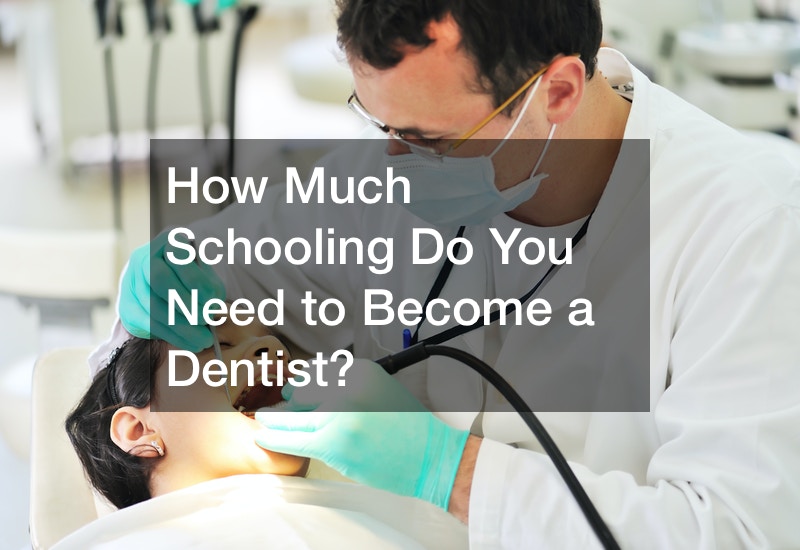
Updated 05/11/22
Tooth decay and gum disease, if left untreated, can cause discomfort, self-confidence issues, and tooth loss. Malnutrition, speech impairments, and other challenges in a person’s employment, school, or personal life may result from these issues. Dental issues can be avoided by understanding how to take proper care of teeth. To keep your teeth and gums healthy, practice good oral hygiene and learn how to brush your teeth gently. Brushing twice a day and getting frequent dental checkups are part of it.

On the other hand, oral health is about more than cavities and gum disease. According to research, there is a link between keeping your teeth healthy and your overall health. Oral health issues are considered a global health burden by experts. Several issues might impair your mouth’s health, but proper care can keep your teeth and gums healthy as you age. It is recommended that you visit your family dental clinic frequently in this regard. Learning how to brush your teeth better ensures healthy teeth and gums, making it easier for you to eat well and enjoy a good meal.
To become a dentist, one must have a lot of formal schooling. Beginning in high school, the path to dental school was rigorous. A prospective dentist needs to obtain at least a bachelor’s degree, complete advanced science courses and get an accredited degree from a dental school that is nationally recognized. Then comes more training before being able to practice independently.
Here are some prerequisites for dental school:
Dental Anatomy
For many years, dentists have been required to study dental anatomy as part of their training. This requirement is meant to ensure that all dentists are trained to have a working knowledge of how the teeth are arranged, what they do, and why. Dental anatomy also serves as a framework for understanding the placement of teeth, how they work together with each other, and jawbones. It is also used to explain dental problems and their possible solutions through oral surgery. Dental anatomy is studied in great detail, which helps to determine how much schooling do you need to become a dentist.
By knowing dental anatomy, a dentist can remain assured of what each part of the mouth is called during treatment sessions with patients. This allows for better communication with the patient about any problems or concerns about their teeth. To become a dentist, one must study dental anatomy as part of their training. After graduating from high school, students interested in becoming dentists should apply to dental schools to receive further education and training. During this time, prospective dentists will take courses that focus on basic sciences such as chemistry and biology.

Radiology
Radiology is crucial for dental school since 65% of dental diseases are diagnosed through radiographic images. A dentist’s ability to interpret x-rays is critical when determining how much schooling do you need to become a dentist. Dental students learn periapical, bitewing, panoramic, and occlusal radiography to maintain competency in their clinical years. A good grasp of anatomy is vital for the proper interpretation of x-rays. All dental schools would require their students to go through a course on basic radiology before graduating. This is because dentistry and radiology both deal with ionizing radiation to create images.
The knowledge and appreciation for radiographs will help future doctors better care for their patient’s oral health. Radiographs of teeth and surrounding structures are an essential diagnostic modality in modern dentistry. With the use of digital imaging, new tooth information is captured in each image taken. The interpretation of radiographs remains a standard method for detecting dental disease. Because of this reason, diagnostic radiography forms an essential part of undergraduate instruction in dental schools throughout the world. The ability to interpret dental radiographs is neither luck nor coincidence. The student takes an organized dental exam to learn all aspects of interpreting radiologic images, including language and concepts associated with x-rays.
Endodontics or Root Canals
To open a dentists office, one must be in a position to know how much schooling do you need to become a dentist. One of the courses included in dental school is something called Endodontics or root canals. This is a holistic dental care course that involves cleaning out an infected or diseased pulp in a tooth. This is done by shaping the inside of the canal and placing a filling material into it. However, why do dentists go through the trouble of learning how to clean out an infected pulp in a tooth? It is actually because this is one of the most common dental problems. It is estimated that about 80% of adults will need to have a root canal at some point in their lives.
If you want to be a dentist, you need to learn how to do them. Endodontics is a course in dental school that many students find boring. There are numerous jokes about root canals and this particular dental procedure. However, the fact remains that it is an integral part of being a dentist. Dentists need to have all their education so they can help people who have problems with their teeth.
Periodontology
You might be wondering how much schooling do you need to become a dentist and why a dentist needs to study periodontology. Dental periodontists treat the gums. If the gums don’t receive proper care, a person will lose their teeth. If you want to take a class in dental periodontics, you may have to wait until after graduation from dental school. However, if these professionals want to learn more about the subject, they can enroll at any time. Part of the reason periodontology is included in dentistry programs is that it is considered part of mainstream dentistry.
However, there is a greater need for dental specialists when it comes to periodontology. This is because there are more problems with the gums than just bad breath. Gum disease can be dangerous. It has been linked to heart disease in some cases. Because of this link, many dentists are studying periodontology. A dental school with a periodontology program will offer courses on different types of diseases that affect the gums. They may also provide treatments for these conditions, which range from medications to surgery. A person who takes this type of class will learn how to diagnose and treat gum disease. They will take courses on healthy gums as well.

Oral Surgery
Dentistry encompasses a wide range of specialties and dental specializations. As a dental student, you might be wondering how much schooling do you need to become a dentist. While most dental schools are centered on general clinical dentistry, there are a variety of specialties that graduates can pursue. One such specialty in dentistry is oral surgery, which includes surgical instruction and training in implantology, endodontics, and dental bonding. Oral surgery encompasses all procedures related to the inside and outside of the mouth and is concerned with treatment involving tooth removal, tooth replacement, and restoration.
The dental school provides a comprehensive foundation in the field; however dental students may pursue additional training in oral surgery at a postgraduate level to become more knowledgeable on surgical techniques related to their area of focus. In this regard, many oral surgeons choose to pursue an additional year of specialty training through a residency, further developing their oral surgery skills. While oral surgery is an essential aspect of the dental field, you need to be aware that most dentists do not practice this specialty. Additionally, oral surgery procedures are typically performed in a medical setting by an oral surgeon.
Orthodontics
Orthodontics is a branch of dentistry that deals with diagnosing, preventing, and treating irregular teeth. This field includes space correction, movement of teeth, jaw relations, or bite problems. It is commonly considered cosmetic dentistry, but its main aim is to expose a student to how much schooling do you need to become a dentist. It is the only dental specialization that represents a classic ‘applied’ science. It uses both basic sciences (like biophysics) to understand the problem and then utilizes clinical sciences to solve the problem.
Orthodontists are involved in research that supports or disputes their clinical decisions. As a result, many universities now offer advanced training for orthodontic practice
to take classes and conduct research. In some countries, only those with a degree in orthodontics can use the title ‘orthodontist.’ In other countries, this is not required. Many dentists choose to study this branch of dentistry because it allows them to increase their income through practicing cosmetic dentistry. It also allows them to offer orthodontic care to their patients, most of whom will not need surgery or general anesthesia. This is where the most cutting edge work is being done in orthodontics, where most cutting edge research is taking place.

Nutrition
Dentists have a lot of education in nutrition. They are informed about what nutrients are essential for oral and overall health, how much is suitable for people, and knowledge of different diets that contain these nutrients at appropriate levels. They know how much schooling do you need to become a dentist and have a good understanding of what proteins, carbs, fats, vitamins, and minerals are. Dentists receive at least two years’ worth of nutrition education in dental school. Many also further study in this niche field, like participating in continuing education programs or completing a master’s degree program.
This doesn’t mean that they are nutritionists or dietitians, but they have a good knowledge base for helping their patients understand the relationship between what they eat and their oral health. A healthy diet is a primary requirement for a healthy mouth. If teeth aren’t getting the nutrients they need, they will be more susceptible to tooth decay and periodontal disease. Healthy gums and teeth are directly related to a healthy heart, so understanding nutrition is essential for a dentist. Dentists know that sugars, starches, and acids can cause problems with teeth. They also understand how to teach patients ways to reduce the harm these nutrients can do and increase protective nutrients like vitamins and minerals in their diets.
Dental Public Health
Dental Public Health (DPH), or community/public dental hygiene, is defined as the anticipation, prevention, and control of oral disease in populations through organized efforts of dental professionals. It focuses on mitigating risks for the development of both initial illness (e.g., tooth decay) and further disease progression via effective health care policy, procedures, and educational programs. Dental public health includes community oral health, epidemiology, environmental factors (i.e., fluoridation), nutrition, and social determinants of disease.
An essential goal of dental public health is to eliminate preventable oral diseases and promote an understanding of how much schooling do you need to become a dentist.By promoting and leading behavioral change, using clinical and epidemiological skills, dentists can influence the positive perception of oral health from an early age, enabling society to be more resilient to untreated disease. Dental public health is a growing career path for dentists, with the academic requirements shifting to reflect more population-based approaches. The move toward public health can be seen in dental programs, with accreditation bodies requiring more community-based experience in graduate training.

Prosthodontics or Crowns and Bridges
Prosthodontics is a sub-specialty of dentistry concerned with preventing, diagnosing, and treating diseases related to the mouth. Prosthodontists can perform surgeries to convert natural teeth into fixed restorations that look aesthetically pleasing and correct conditions that affect the function or reduce patient comfort. This includes correcting malocclusions, restoring teeth using adult braces, and ensuring patients receive the right braces or other prosthetic device to improve their quality of life. There are several reasons why a dentist may choose to complete training and practice as a prosthodontist.
First, practicing as a prosthodontist provides an exciting and satisfying career path for those who want to apply their education and professional abilities in the complex treatment of patients suffering from conditions related to the mouth. Second, it is becoming more and more essential for dentists to be knowledgeable about how much schooling do you need to become a dentist and skilled in prosthodontics as roughly 70% of adults apply to have one or more teeth replaced due to caries or periodontal disease. Third, practicing prosthodontics can increase a dentist’s salary and earning potential. Many dentists who practice prosthodontics often earn salaries that are higher than their colleagues in general dentistry practices.
Oral Pathology
The dental school curriculum requires students to become familiar with how much schooling do you need to become a dentist. Oral pathology is about the diagnosis and treatment of diseases affecting the oral cavity. It also looks at possible reasons for signs or symptoms not related to the disease. A dental professional needs to be familiar with all aspects of oral pathology. This includes the study of common conditions, as well as uncommon ones.
The study of oral pathology aids in diagnosing and treating medical conditions that occur in other areas of the body. About 30% of disorders affecting the mouth could be symptoms of diseases happening elsewhere in the body, such as cancers or cardiovascular issues. Further, they need to understand how these diseases start, develop, and establish proper treatment plans for their patients. This knowledge helps them counsel their patients, especially when they are at high risk for certain diseases. A dentist who becomes board-certified in oral pathology or oncology can perform surgery and prescribe chemotherapy. They can also practice in the areas of oral surgery, periodontics, prosthodontics, and restorative dentistry. Furthermore, they can make recommendations about how to improve a patient’s oral health. This includes stopping bad habits like smoking or chewing tobacco, alcohol consumption, and excessive tooth brushing.
The amount of time it takes to become a dentist has been the subject of debate for some time. Depending on where you live and whether or not you attend dental school immediately after completing undergraduate studies, it can take anywhere from six years to complete all the necessary steps.



